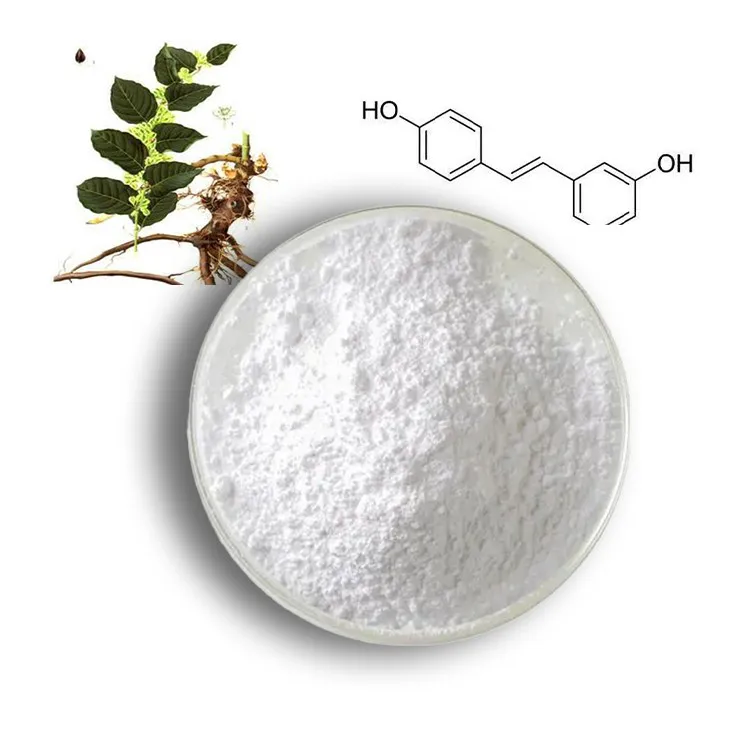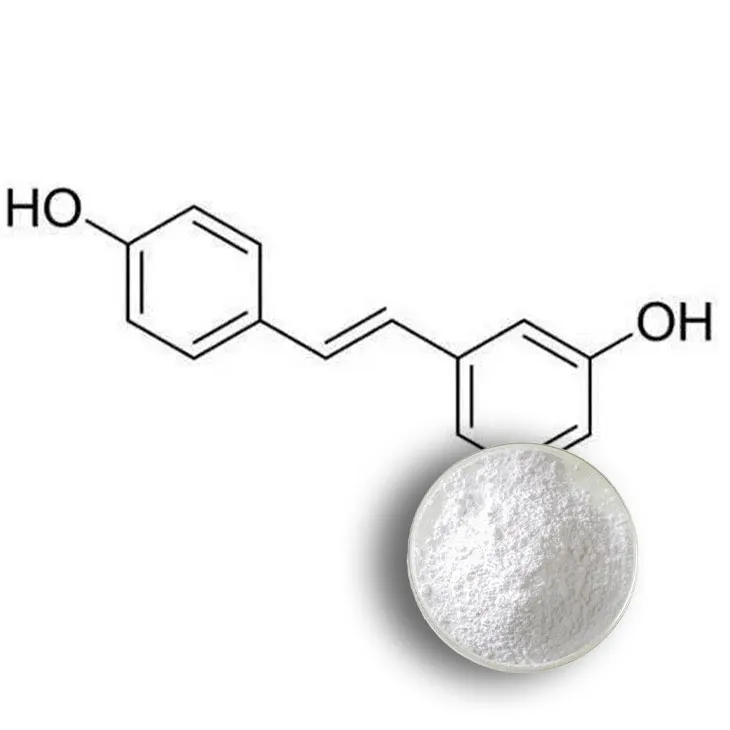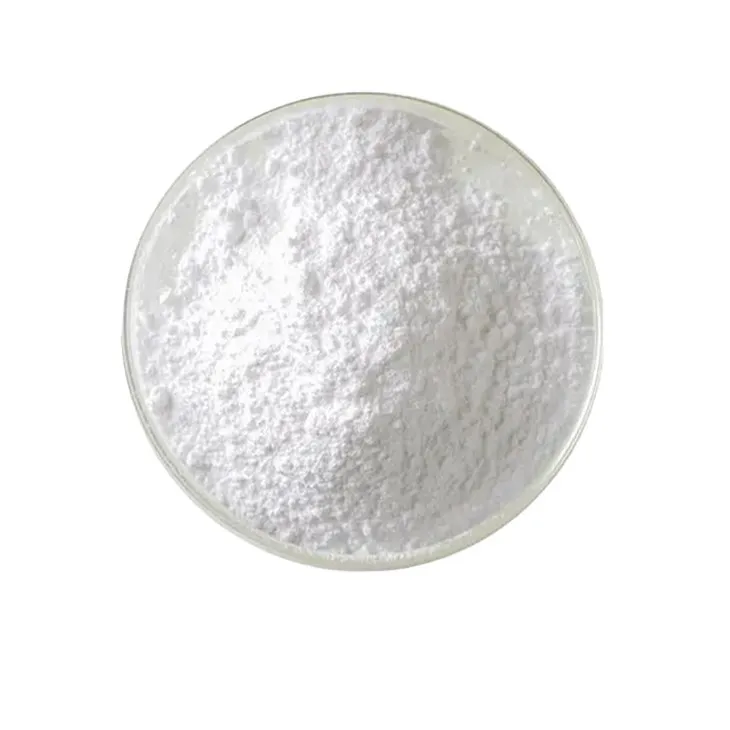- 0086-571-85302990
- sales@greenskybio.com
Resveratrol extract: Is the extract effective for weight loss?
2024-11-12

Introduction
White Resveratrol extract has been a subject of great interest in the health and fitness community. Resveratrol, a natural compound present in grapes, berries, and certain plants, is thought to possess a variety of potential health benefits. Weight loss is one area where it has received significant attention. However, understanding its true effectiveness in this regard requires a closer look at the scientific evidence and various mechanisms involved.

Resveratrol and Metabolism
1. The Basics of Metabolism
- Metabolism refers to the set of chemical processes that occur within the body to maintain life. It includes two main components: anabolism (building up of molecules) and catabolism (breaking down of molecules). When it comes to weight loss, the focus is often on the catabolic processes that lead to the burning of calories.
- Basal metabolic rate (BMR) is the amount of energy expended by the body at rest to carry out basic physiological functions such as breathing, circulating blood, and maintaining body temperature. A higher BMR means the body burns more calories at rest, which can be beneficial for weight management.
- Some studies suggest that resveratrol can boost the body's metabolic rate. It may do this by interacting with certain enzymes and cellular processes involved in energy production. For example, it has been proposed that resveratrol can activate AMP - activated protein kinase (AMPK), which is often referred to as the body's "metabolic master switch."
- When AMPK is activated, it can initiate a cascade of events that lead to increased fatty acid oxidation (the breakdown of fats for energy) and improved glucose uptake in cells. This means that the body is more likely to use stored fat and carbohydrates for energy, rather than storing them as excess weight.
- However, the degree to which resveratrol affects metabolism can vary from person to person. Factors such as age, gender, overall health, and genetic makeup can all play a role in determining how an individual's body responds to resveratrol supplementation.

Resveratrol and Appetite Regulation
1. The Importance of Appetite Regulation in Weight Loss
- Controlling appetite is a crucial aspect of weight loss. If a person consumes more calories than their body needs, the excess will be stored as fat. Therefore, reducing appetite or increasing feelings of fullness can help in achieving a calorie deficit, which is necessary for losing weight.
- There are several hormones and neurotransmitters involved in appetite regulation, such as ghrelin (the "hunger hormone") and leptin (the "satiety hormone"). Imbalances in these hormones can lead to overeating or excessive snacking.
- There is some evidence to suggest that resveratrol may play a role in appetite regulation. It could potentially act on the brain to reduce cravings for certain types of foods, especially those high in sugar and fat.
- Resveratrol may also affect the levels of appetite - related hormones. For instance, it might increase leptin sensitivity, which would mean that the body is better able to respond to the signals of fullness. This could lead to a reduction in overall food intake.
- However, more research is needed to fully understand and confirm these potential effects on appetite. Current studies are often limited in scope or sample size, and further investigations are required to draw more definitive conclusions.

Resveratrol and Fat Cells
1. How Fat Cells Function
- Fat cells, also known as adipocytes, play a central role in storing and releasing energy in the form of fat. When the body takes in more calories than it can immediately use, these excess calories are stored in fat cells for later use.
- The normal functioning of fat cells involves processes such as lipid uptake (taking in fats from the bloodstream), lipid synthesis (creating new fats), and lipid mobilization (releasing stored fats when the body needs energy).
- There is evidence indicating that resveratrol could interfere with the normal functioning of fat cells. It may prevent them from taking up excessive amounts of fat from the bloodstream. This could be due to its effects on the transporters and enzymes involved in lipid uptake.
- Resveratrol might also influence the process of lipid synthesis within fat cells. By inhibiting certain enzymes involved in this process, it could reduce the production of new fats, thereby limiting the amount of fat that can be stored in the body.
- Furthermore, resveratrol may promote lipid mobilization in fat cells. This means that it could encourage the release of stored fats, which can then be used by the body for energy. However, these effects on fat cells are complex and not fully understood, and more research is needed to clarify the exact mechanisms.

The Limitations of Relying on Resveratrol for Weight Loss
1. Incomplete Evidence
- While the potential mechanisms by which resveratrol may contribute to weight loss are interesting, the scientific evidence is still incomplete. Many of the studies conducted so far have been in vitro (in test tubes or cell cultures) or in animal models. Although these studies can provide valuable insights, the results may not always translate directly to humans.
- Human studies on resveratrol and weight loss often have small sample sizes or short - term durations. This makes it difficult to draw firm conclusions about its long - term effectiveness and safety for weight loss in humans.
- Even if resveratrol does have some positive effects on weight loss, it should not be considered a substitute for a balanced diet. A diet rich in fruits, vegetables, whole grains, lean proteins, and healthy fats is essential for providing the body with the necessary nutrients and maintaining overall health.
- Regular exercise is another crucial component of any weight - loss plan. Physical activity helps to increase calorie expenditure, build muscle mass (which can boost metabolism), and improve cardiovascular health. Without exercise, it is difficult to achieve significant and sustainable weight loss.
- Other lifestyle factors such as stress management, adequate sleep, and avoiding excessive alcohol and tobacco use also play important roles in weight management. Relying solely on Resveratrol extract without addressing these other aspects is unlikely to lead to successful weight loss.
Conclusion
White Resveratrol extract shows some potential for contributing to weight loss through its effects on metabolism, appetite regulation, and interactions with fat cells. However, the evidence is not yet conclusive, and more research is needed, especially in human studies. Moreover, it is important to remember that a balanced diet and regular exercise remain the foundation of any effective weight - loss program. While resveratrol may be a useful addition to a weight - loss regimen, it should not be relied upon as the sole method for losing weight.
FAQ:
What is white resveratrol extract?
White resveratrol extract is a natural compound that can be found in grapes, berries, and some plants. It has attracted a great deal of attention in the health and fitness area due to its potential health benefits.
How does white resveratrol extract influence metabolism?
Some studies have shown that white resveratrol extract can increase the body's metabolic rate. This means that the body can burn calories more effectively. However, the degree of this influence may be different from person to person.
Can white resveratrol extract really regulate appetite?
There is a possibility that white resveratrol extract can play a role in appetite regulation. It might be able to decrease cravings or make people feel full for a longer time. But at present, more research is required to firmly confirm this effect.
How does white resveratrol extract interact with fat cells?
Evidence suggests that white resveratrol extract could interfere with the normal operation of fat cells. It may stop fat cells from storing too much fat. But more in - depth research is still needed to fully understand this interaction.
Is it enough to rely only on white resveratrol extract for weight loss?
No. While white resveratrol extract has some potential mechanisms related to weight loss, a balanced diet and regular exercise are still the fundamental elements of any successful weight - loss plan.
Related literature
- Resveratrol and Weight Management: Current Evidence and Perspectives"
- "The Role of Resveratrol in Metabolism and Obesity: A Review"
- ▶ Hesperidin
- ▶ Citrus Bioflavonoids
- ▶ Plant Extract
- ▶ lycopene
- ▶ Diosmin
- ▶ Grape seed extract
- ▶ Sea buckthorn Juice Powder
- ▶ Fruit Juice Powder
- ▶ Hops Extract
- ▶ Artichoke Extract
- ▶ Mushroom extract
- ▶ Astaxanthin
- ▶ Green Tea Extract
- ▶ Curcumin
- ▶ Horse Chestnut Extract
- ▶ Other Product
- ▶ Boswellia Serrata Extract
- ▶ Resveratrol
- ▶ Marigold Extract
- ▶ Grape Leaf Extract
- ▶ New Product
- ▶ Aminolevulinic acid
- ▶ Cranberry Extract
- ▶ Red Yeast Rice
- ▶ Red Wine Extract
-
Acerola Juice Powder
2024-11-12
-
Troxerutin
2024-11-12
-
Black Rice Extract
2024-11-12
-
Andrographis Paniculata Extract Powder
2024-11-12
-
Citrus Aurantium Extract
2024-11-12
-
Curcuma Longa Extract
2024-11-12
-
Propolis Extract Powder
2024-11-12
-
Lemon Extract
2024-11-12
-
Withania Somnifera Extract
2024-11-12
-
Medicinal Marshmallow Extract
2024-11-12





















